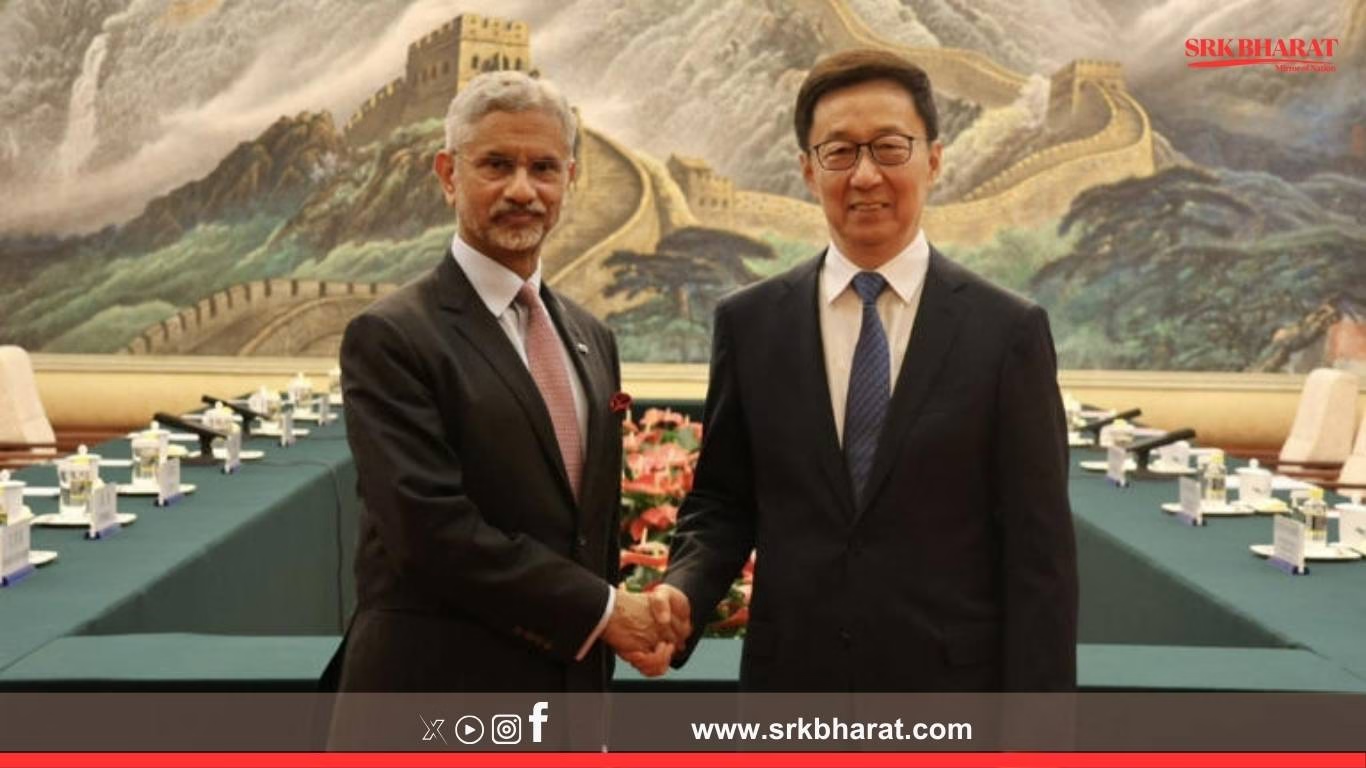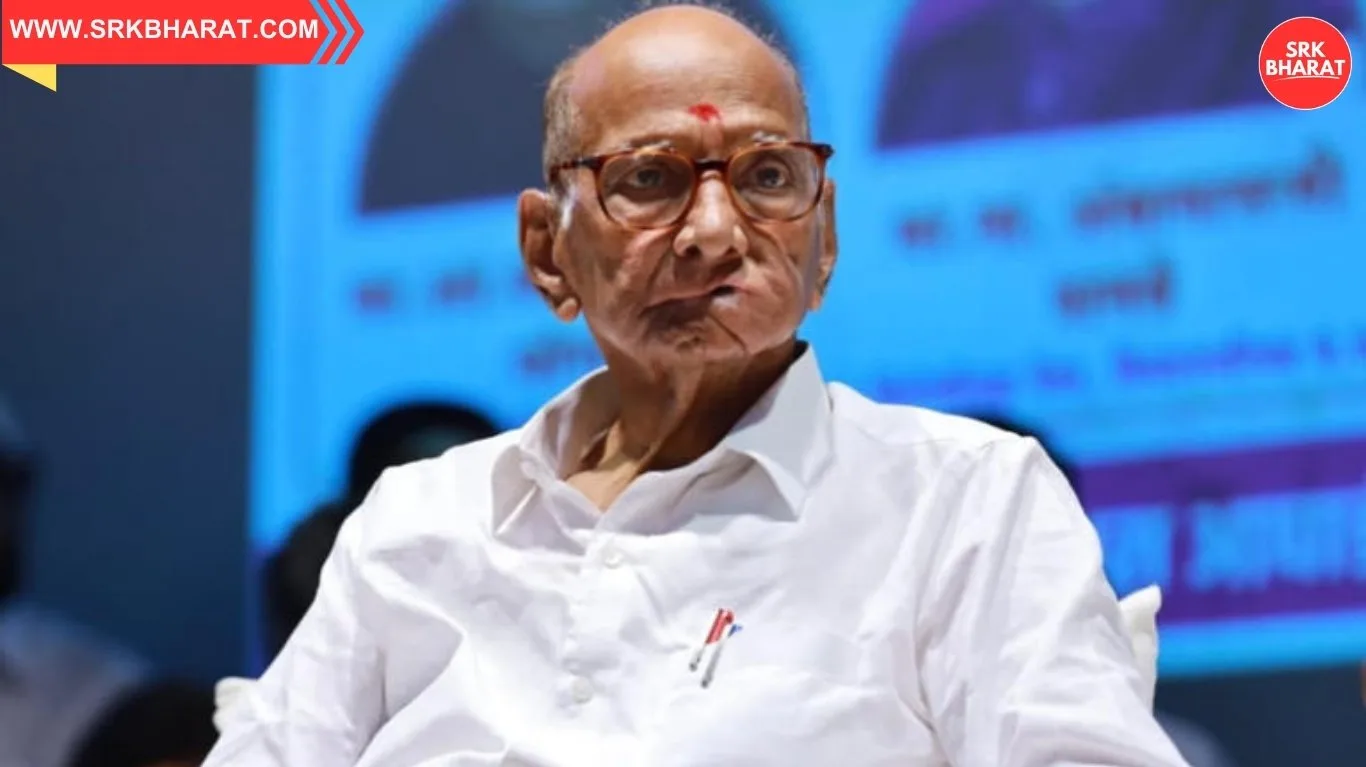External Affairs Minister S Jaishankar attended the Shanghai Cooperation Organisation (SCO) Council of Foreign Ministers’ meeting in Beijing, underscoring India’s commitment to regional stability through open and balanced dialogue. His visit marks a crucial diplomatic outreach amid complex geopolitical currents, particularly in the backdrop of India-China tensions and shifting Eurasian dynamics.
India’s message: Dialogue vital to SCO’s relevance
Addressing the plenary session, Jaishankar emphasised that open dialogue, mutual respect, and adherence to international norms are essential to ensure the SCO remains a credible multilateral platform for regional peace, economic growth, and counterterrorism.
| Key Highlights of Jaishankar’s Address |
|---|
| Advocated for sovereign equality among SCO states |
| Highlighted need to combat terrorism without discrimination |
| Stressed resilient and diversified supply chains for economic security |
| Called for full respect for territorial integrity and sovereignty |
He stated, “The SCO has the capacity to shape Eurasia’s future, but only if member nations engage with each other transparently and constructively.”
Focus on India-China bilateral sidelines
On the sidelines of the meet, Jaishankar held talks with Chinese Foreign Minister Wang Yi. While official statements remained measured, diplomatic sources indicated that Jaishankar reiterated India’s stand on restoring full peace at the Line of Actual Control (LAC) to normalise ties.
The two leaders reportedly discussed:
- Border disengagement: Jaishankar stressed the need for expediting disengagement in remaining friction points in Eastern Ladakh to resolve the 2020-21 standoff implications.
- Trade balance concerns: He urged China to address India’s rising trade deficit through market access and reduced non-tariff barriers.
- Global South cooperation: Both sides agreed on closer cooperation under BRICS and G20 frameworks to advance developing nations’ priorities.
India’s strategic approach to SCO
India views the SCO as a crucial platform to counterbalance Chinese dominance and influence regional security architecture by strengthening ties with Central Asian states, Russia, and Iran.
| SCO Member States | Key Relevance for India |
|---|---|
| China | Managing border issues, trade ties, regional security |
| Russia | Defence and energy partnerships |
| Kazakhstan | Energy and connectivity cooperation |
| Uzbekistan | Strategic location for Central Asian outreach |
| Kyrgyzstan | Defence training and cultural ties |
| Tajikistan | Military bases and security coordination |
| Iran | INSTC, energy trade, and regional stability |
Jaishankar called for accelerating connectivity projects such as the International North-South Transport Corridor (INSTC) and Chabahar Port to bolster regional trade, linking South Asia to Eurasia effectively.
Terrorism remains a core concern
In strong remarks, Jaishankar highlighted the need for collective and uncompromising action against terrorism, indirectly referencing Pakistan’s continued patronage of cross-border terror networks.
He noted, “There can be no justification for terrorism. The SCO must demonstrate zero tolerance and effective counter-measures to uphold regional security.”
Energy security and supply chain resilience
During economic discussions, Jaishankar urged SCO members to focus on resilient and diversified supply chains, enhanced regional energy trade, and digital public infrastructure cooperation, areas where India has showcased leadership under its G20 presidency.
India’s SCO presidency achievements
India handed over the SCO presidency to Kazakhstan after hosting a virtual summit in 2023 and implementing initiatives including:
- Launch of a joint digital public goods framework
- Formation of an expert group on traditional medicine
- Promotion of millets as climate-resilient food staples
Expert analysis on Jaishankar’s visit
Strategic affairs analyst Dr. Arvind Gupta commented, “Jaishankar’s visit is significant for three reasons – stabilising India-China ties, safeguarding India’s strategic space in SCO from Chinese overreach, and deepening Central Asian partnerships.”
Former ambassador Rakesh Sood noted that while SCO’s effectiveness is limited by structural asymmetries, India’s engagement ensures it retains influence in continental Asia’s evolving security landscape.
Key outcomes and future outlook
| Outcome | Implications |
|---|---|
| Reinforced India’s stance on sovereignty and terrorism | Signals India’s firm diplomatic positioning |
| Bilateral talks with China | May catalyse incremental border disengagement |
| Push for connectivity and economic integration | Aligns with India’s Eurasia strategy |
Conclusion
Jaishankar’s participation in the SCO meet in Beijing reaffirmed India’s proactive diplomacy to promote regional stability while safeguarding national interests. His advocacy for open dialogue and mutual respect resonated with India’s vision of a balanced multipolar Asia amid intensifying global power shifts.
As New Delhi continues its outreach to Central Asia and balances ties with Russia, China, and Iran, India’s strategic presence in the SCO will remain an important pillar of its Eurasian policy trajectory in the coming years.
Disclaimer: This article is based on official statements, diplomatic briefings, and public domain analyses. It is intended solely for informational and journalistic purposes, and does not constitute strategic advice or policy endorsement by the publisher.












перепланировка в нежилом помещении http://pereplanirovka-nezhilogo-pomeshcheniya9.ru/ .
цены на натяжные потолки в нижнем новгороде stretch-ceilings-nizhniy-novgorod.ru .
перепланировка помещений https://soglasovanie-pereplanirovki-kvartiry3.ru .
сделать проект перепланировки сделать проект перепланировки .
сделать проект перепланировки квартиры сделать проект перепланировки квартиры .
seo expert ranking http://www.top-10-seo-prodvizhenie.ru/ .
one x bet https://1xbet-giris-7.com .
1x bet giri? 1x bet giri? .
seo с нуля http://kursy-seo-11.ru .
карниз моторизованный http://www.elektrokarniz797.ru .
аренда студии для записи подкаста https://studiya-podkastov-spb4.ru/ .